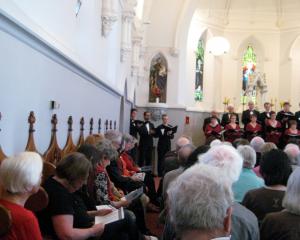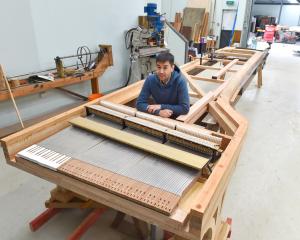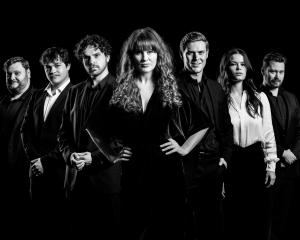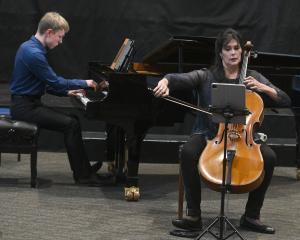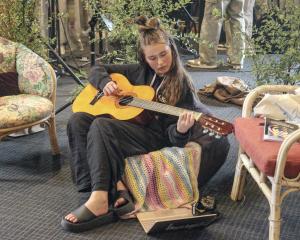The lunchtime recital at Marama Hall yesterday featured a Berlin-based international string quartet - the Lazarus Quartet, established in 2007 at Canterbury University.
The quartet now comprises members from different countries: Mayumi Kanagawa (United States/Japan) violin, Jos Jonker (Netherlands) violin, Albin Uusijarvi (Sweden) viola, and founding member Alice Gott (alumni of Canterbury University) cello.
Gott was born in Dunedin in 1990 and began playing cello at the age of 5.
The good-sized audience was treated to two contrasting string chamber works, and from the opening lines of Mozart's String Quartet No16 in E-flat major it was apparent this would be a top-shelf performance. Allegro non troppo immediately displayed strong warm tones and immaculate co-ordination, plus virtuosity from all in thematic and arpeggioic exposure.
Andante con moto delivered tight harmonic blends, subtle chromaticism and mild dissonance, then the minuetto and trio revealed a chirpy contrast in character, highlighted by passages of mezzo staccato ''togetherness''.
The final rondo form, allegro vivace, was accorded a constant vivace emphasis.
The second work, String Quartet No 2 in A minor (1917), by Bela Bartok, was a total contrast. Written by a Hungarian during the war years, this was a display of relentless dissonance - tense unsettling music.
The long silence before applause at the end showed the audience were completely drawn in to the emotive interpretation of this three-movement work, which Bartok described as ''a peaceful life - joy - suffering''.
It is agitated, fragmented and massively expressive, and the quartet dealt with motifs of peasant rhythms and melody throughout the first two movements, expressing feelings of hope, then melancholy, until the final dark and desolate lento in which textures, pizzicati and extreme dynamics spelt out the desperation and suffering of war. This was Bartok at its absolute best!
-By Elizabeth Bouman

